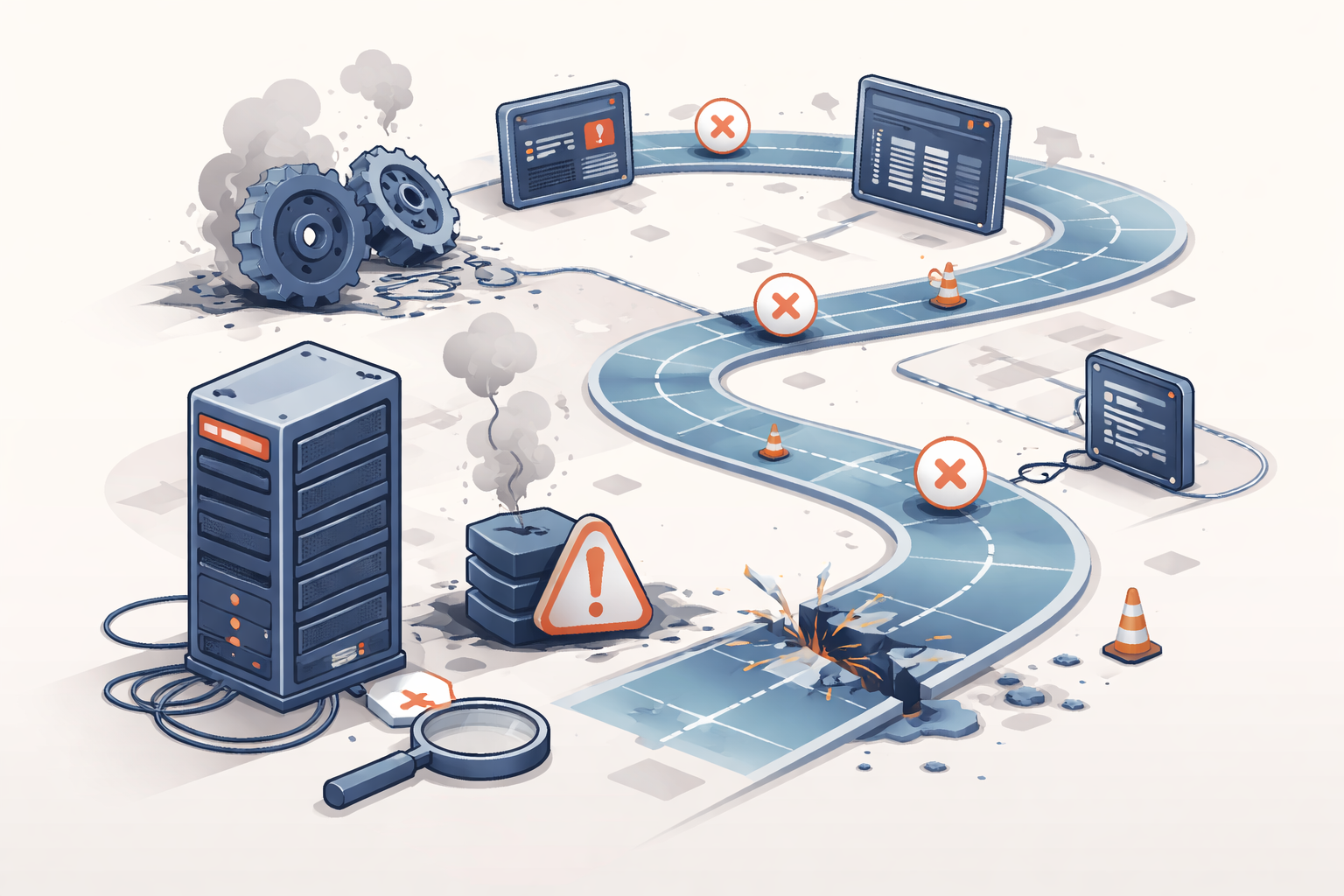Europe's three-stage rocket

Yes, Europe lags behind the United States when it comes to technology. However, we were never in better shape than we are now. This is how we can move forward.
Over the past few months, I've written several articles about four-letter words that no one knows, but that will change Europe in the coming months. Or at least our business community. Terms like CSRD, EUDR and ESRS, for example. These are European guidelines that require companies to report on certain things they do in a standardized way.
On the one hand, I think the idea behind it is quite cool, because from now on, for example, you will be able to see how sustainable it really is from any major company. For example, they will have to show in black and white how much damage they are doing to the climate, how they deal with human rights and how many people in the organization are struggling with burnout, for example. Such reports help investors compare companies based on values that are not necessarily financial metrics. If we want to green the world and make the business world more humane, that is an important move.
Europe on its own
Nevertheless, after writing about five articles, I felt sad. How much time does it take to do this? On Twitter, I read that a third of the companies now go into administration ten percent of the time. Isn't it better to focus on other things? It sounds conceited, but the flood of extra work involved in preparing these reports is very inconvenient. After all, the world is on fire: certain countries are happily ignoring international treaties, we will most likely lose our ally America in the next four years, and Russia and a group of North Koreans are at the gates of Europe. Especially now that the aging population and the emerging anti-migration policy will mean that we have to do more with fewer staff, everyone needs to become more productive.
That does not seem to be happening: the gap between Europe and other major powers is widening. For a long time, we grew as fast as the United States, but in the last decade, we dropped out. In a hotly debated report, former ECB CEO Mario Draghi wrote that “the foundations on which we built are now being shaken. ' Europe, says Draghi, will lose its raison d'être if we do not act. I agree with him.
A number of European sectors, including the car industry, are down an endless dork street. This does not have to be the case for all industries. Certainly not for the one I know best: the technology sector. If we want to turn the tide in Belgium and Europe, there is a need for a three-stage rocket.

Step 1: Make sure you have a strong foundation
If you want to build a thriving sector, you need a solid foundation. Every now and again, economists in financial media proclaim that “more people should be encouraged to do business”. A logical proposal, although not everyone agrees on how to achieve that goal. Fewer rules? More subsidies?
I've been an entrepreneur myself for just under five years now. When I discuss this topic with my brother, he often says that Belgians do not have the mentality to start their own business. It is also an argument that Louis Jonckheere recently on LinkedIn used when talking about DeepSeek:
Why was DeepSeek not developed in Europe?
It's built by a company of 200 people, mainly recent university graduates and developers early in their AI careers. This is at a cost of $5.6M.
What are we missing? Pretty sure the problem is not bureaucracy, nor talent, nor the money. It's mindset, it's ambition, it's the lack of us taking risks.
Time to get that changed!
There will undoubtedly be some of it, but we have to dare to think beyond those clichés. Sometimes I think back to starting my own company and consider why I didn't start it sooner, hoping to find an answer there. While writing this piece, I caught my eye on a quote by Hans Bourlon in an interview more than five years ago. “Entrepreneurs should not be the farmers of fifteen years ago, who were always seeing and complaining. That doesn't inspire young people to become entrepreneurs either. '
It's a feeling I recognize: I always say that I started doing business despite, and not thanks to, employers' organizations such as VOKA and Unizo. It is they who continuously report ominous reports about the self-employed in the media, complaining about how difficult it is to start a business in Belgium, the administrative mess that comes with hiring someone, or how much you keep from your profits as a self-employed person.
In reality... that seems to be not so bad. I was so scared by the VOKas and Unizos of the world that in recent years I had to ask the social secretariat or the accountant “if that's all I had to do”. Especially in the tech sector, most entrepreneurs are doing quite well. If you want to start a startup, you usually only need a laptop in the initial stages. Recruiting developers is also easier these days than it was two years ago. One of our clients is an IT recruiter, and said that he received more than 2,000 applicants this year.
Is your company unexpectedly unsuccessful? Then nothing was lost. And no, people are not going to look at you in the wrong either. The “you shouldn't stick your head above ground level in Flanders” feeling is unnecessary. What's more: here, too, we love self-made entrepreneurs who dare to take risks. Almost every Fleming wants to be Gert Verhulst and thinks it's normal for Marc Coucke to decide for himself what to do. does with the millions that he cashed when selling Omega Pharma instead of “dumping them into a bottomless pit that is the Belgian treasury.”
Step 1: Change the narrative. Focus not only on the doomsday stories, but also and especially on why people should become entrepreneurs.

Step 2: Continue to grow faster
A good basis is half the work, but giving everyone their own company will ultimately not get there either. “The early stage of very early investments is running at full speed. In addition, you can even see that investors are venturing earlier and earlier. Grand tours with more established names are also doing very well. Look at Lighthouse. But the rounds in between are still struggling. In that phase, investors in our country experience a kind of calculated realism,” Lorenz Bogaert recently said. in De Tijd record.
If you outline the Belgian tech landscape, you won't see a nice pyramid with a solid base, a decent middle and a nice peak. In reality, there are quite a few startups and a handful of scaleups worth more than 1 billion, but the layer in between is far too thin. For my weekly section in Trends Magazine, I've now interviewed 150 tech companies with a turnover or capital round of at least 1 million euros, and to be honest, there are few companies that will become unicorns in the short term.
Not that that has to be a problem, because we need to get rid of that fixation on unicorns anyway. It is inspiring to have a number of them, and to strive for them, but it should not be an end goal. Such a high valuation is nice for investors and for the people who work there, but therefore does not necessarily have direct added value for the ecosystem.
What is striking in my interviews is that entrepreneurs almost always say the same thing: “my product is finally on point, now we are going to raise money to work on sales and marketing”. That's a completely different line of reasoning than most tech entrepreneurs in the United States use. There, people want to bring a product to the market as quickly as possible, and then adjust it. From the start, there is as much attention for the packaging as the content — what can make or break success. Belgian startups that understand that — think of a Henchman, Tally or TechWolf — often make much bigger leaps than their competition. To scale that, there is a need for even more people who have a genuine passion for tech, know a lot about it, and can get started with it when it comes to marketing.
Step 2: Teach startups to use marketing from day 1, instead of first looking for that product-market fit for years.

Step 3: Make Europe One
When we exchange our Belgian hat for the European one, we will soon see that it is the same everywhere. After all, everyone in Europe thinks it's better on someone else's side. In Belgium, people look at the Netherlands, Estonia in the Netherlands, Estonia... In reality, every country has its advantages and disadvantages. Europe is not a single market, and that's what tech expert Ben Evans said when I interviewed him two weeks ago:
“Unfortunately, Europe is not one market. For the tech sector, the United Kingdom is bigger than France and Germany combined. Digital adoption is very high in some European countries, while others are a decade behind. Before the pandemic, for example, barely a third of Italians had ever made an online purchase. Here, like in the United States, you can't launch a service in London, Milan, Berlin and Madrid at the same time. They are different countries, with different laws and languages. If you live in Krakow or Porto, you can't just move to Athens to work as a developer. '
It is perhaps the most important requirement of Eu Inc., a petition that has now been signed by around 10,000 people. Also on the idea board similar proposals come up from another initiative — and for the first time, the EU seems sincere there open to. 'Europe should foster innovative success based on its own values', wrote Marietje Schaake in Financial Times. We should not want to copy Silicon Valley, but make it our own version.
A strong European tech sector will also prevent what is called the “digital deficit” in Japan. People there are (too) dependent on foreign technology — a thought that can live even harder in Europe. Nice that the Flemish government is closing a deal with Microsoft, but there are also local players from whom we have to buy. That realization seems to be coming in more and more: Europe is freeing up money for a Starlink competitor to build and also in the field of defense, some state leaders want to make a point of choosing European arms manufacturers over American ones. The tech stack what we work with must become increasingly European.
The most important thing is that a lot of awareness is created among Europeans, so that they know that these alternatives exist. Skip Google Translate and use Deepl, for example, the German scaleup that has now 2 billion is worth. The site of Europe Alternatives presents many of these players, so that everyone can opt for local scaleups. In this way, we will ensure that in the coming years, not four, but a lot more, of the fifty largest tech companies will be made in Europe.
Step 3: Make the European market truly one Choose European players consciously and make sure that the general public knows them too.

.png)
.jpg)



